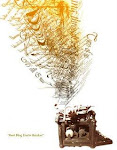 A mysterious stranger appears in Fawlt Line, wearing ancient-looking clothes and speaking perfect Latin. The "lunatic" claims he's King Arthur.
A mysterious stranger appears in Fawlt Line, wearing ancient-looking clothes and speaking perfect Latin. The "lunatic" claims he's King Arthur.
Is he for real? A victim of another crack in time? As Jeff and his cousin Malcolm help the old man return to Britain, they discover again that God can do anything.
A long history of strange disappearances and unexplainable occurrences leave clues that the town of Fawlt Line may actually sit on a time fault—a portal to alternate times and unexpected time travels—a twist of fate that puts all of Fawlt Line’s citizens in serious danger. Will they find the faith to hold on to the town and time where they belong? On a foggy night, Jeff and Elizabeth see a car heading through the mist. A man on horseback is in the middle of the road, and a collision was barely avoidable. Now the victim—a giant of a man—lies on a hospital bed, surrounded by hospital staff and a host of questions.
Has King Arthur really slipped through a time crack into Fawlt Line? Impossible? Perhaps. But lately in the town of Fawlt Line, the impossible has had a way of proving true. And the most incredible events are yet to comeMy Review:Teens will enjoy this time travel adventure of King Arthur, Excalibur, Mordred, and Merlin. I did. The story moves along at a comfortable pace with believable characters handling unbelievable circumstances. Just when the reader thinks he has it all figured out, a new twist in the plot occurs.
The eternal fight of good and evil is the major theme. Can right thinkers prevail over wicked? This is a well written tale that will interest young and old lovers of fantasy.
And now, the first chapter:

“Quid est ergo tempus? si nemo ex me quaerat, scio; si quaerenti explicare velim, nescio.”
[Translation: “What, then, is time? If no one asks me, I know; if I want to explain it to someone who does ask me, I do not know.”]
-St. Augustine
Prologue
A tall gray old man stepped to the pinnacle of Glastonbury Tor, an unusual cone-like hill with a tower named after a saint. In the wet English twilight, the wind whipped the old man’s long gray hair and beard and the ragged brown monk’s robe he wore like a flag in a gale. The dark clouds above moved and gathered around him. Chalice and Wearyall Hills sat nearby, their shoulders hunched. A battered Abbey beyond listened in silence.
The old man cast a sad eye to the green landscape, spread like a quilt, adorned with small houses and shops. He prayed silently for a moment, then pulled an ancient curved horn from under his habit. He placed it to his lips and blew once, then twice, then a final time. The three muted blasts were caught by the wind and carried away.
It was a summons.
PART ONE: The Stranger
Chapter 1
Chapter 2
“Look at that,” Ben Hearn said to his wife Kathryn. “It’s crazy, I tell you. Crazy.”
They were in Ben’s pick-up truck rattling for the Fawlt Line High School to help chaperone the sophomore class end-of-the-year school dance. Mr. and Mrs. Hearn weren’t keen on dances themselves, at least not the modern kind, but their daughter Chelsea would be there for her first real dance in her formal dress and flowers and carefully permed hair. She was escorted by Tommy Daughtry who showed up tonight at their front door in an ill-fitting tuxedo and an awkward blush on his cheeks. Kathryn thought they were an adorable couple, and said so again and again with every photograph she insisted on taking next to the fireplace and on the patio and by Tommy’s dad’s car. Kathryn even took a picture as they drove away.
“Kathryn, are you listening to me?”
“What’s crazy, Ben?” Kathryn suddenly asked, peering through the unusual fog.
“Didn’t you see the sign for Malcolm Dubb’s village?”
Kathryn hadn’t. But since they were on one of the roads bordering Malcolm Dubb’s vast estate, she remembered what sign her husband was talking about. It was the one that announced the construction of Malcolm Dubb’s Historical Village.
“I don’t know what the town council was thinking when they agreed to it,” Ben said. Malcolm was the wealthiest citizen of their little town of Fawlt Line. In fact, his family had been there for close to two centuries. Malcolm, a history buff, had designated a large portion of his property for the village.
Kathryn squinted at the fog ahead. “Don’t you think you should slow down?”
The truck engine whined as Ben heeded his wife. “You know what he’s doing with the village, right? He’s shipping in buildings, Kathryn. Brick by brick and stone by stone from all over the world. Have you ever heard of such a thing? A museum with a few trinkets and artifacts I could understand, but buildings?”
Kathryn smiled. “Malcolm always was obsessed with history. I remember when we were in school together—”
Ben wasn’t listening. “Do you know what they’ve been working on for the past few weeks? Some kind of a ruin from England. A monastery or castle or cathedral or something.”
“From England?” Kathryn asked. “Did he ship in this fog too?”
Ben grunted, “I just don’t understand Malcolm’s fascination with something that’s ruined. What’s the point?”
Kathryn was about to answer—and would have—if a man on horseback hadn’t suddenly appeared on the road in front of them. The fog cleared just in time for Ben to see him. He swore out loud as he hit the brakes and jerked the steering wheel to the right. The horse reared wildly. The man flew backwards to the ground. Kathryn cried out as the truck skidded into a ditch on the side of the road and came to a gravel-spraying stop.
Ben and Kathryn looked at each other shakily.
“You all right?” Ben asked.
Kathryn nodded.
“Of all the stupid things to do—” Ben growled and angrily pushed his door open. “Stay here,” he said before the door slammed shut again.
Kathryn reached over and turned on the emergency flashers.
Ben made his way cautiously down the road. “Fool,” Ben muttered to himself, then called out. “Hello? Are you all right?”
The fog parted like a curtain, as if to present the man lying on the side of the road to Ben.
“Oh no,” Ben said, rushing forward. He crouched down next to the figure, a very large man. Whoever it was seemed to be wrapped in a dark blanket. The man was perfectly still and his face was hidden in the fog and shadows.
“Hey,” Ben said, hoping the man would stir. He didn’t. Ben looked him over for any sign of blood. Nothing was obvious around his head. But what could he expect to see in that fog? “Kathryn! Call 911 on the mobile phone. And bring me the flashlight from the glove compartment!” he called out.
He peered closely at the shadowed form of the man as he heard Kathryn open her door. She was already talking into the phone, gasping instructions to an emergency operator. The shaft of light from the flashlight bounced around eerily in the ever-moving fog. “Ben?”
“Here,” Ben said.
Kathryn joined him. “Ambulance is on its way. But they’re on the line and want to know his condition.”
He took the flashlight from her and got his first full look at the stranger. He had long dark salt-and-peppery hair, beard, and moustache and a rugged, outdoorsy kind of face. Ben couldn’t guess an age for the man. Anywhere from 40 to 60, he figured. He wore a peaceful expression. He could’ve been sleeping. “I can’t tell. There’s no blood.”
Kathryn reported Ben’s findings to the emergency operator, then asked Ben, “He’s not dead is he?”
“I don’t think so.” Ben reached down, separating the blanket to check the man’s vital signs. The feel of the cloth told him it wasn’t a blanket at all. And as he pushed the fabric aside, he realized that it was a cape made of a thick course material, clasped at the neck by a dragon brooch. “What in the world—?”
Kathryn gasped.
They expected to see a shirt or a sweater or a coat of some sort. Instead he wore a long vest with the symbol of a dragon stitched on to the front, a gold belt, brown leggings, and soft leather footwear that looked more like slippers than shoes. The whole outfit reminded Ben of the kind of costume he’d seen in a Robin Hood movie. At his side was a sword in a sheath.
“Is it Halloween?” Kathryn asked.
***
At the high school, the sophomore dance was just getting under way. The Starliners, a rock and jazz band from nearby Hancock, warmed up for their first number as the sound engineer tried to get the volume just right.
Jeff Dubbs, dressed in a tux and looking all the more uncomfortable for it, stepped into the converted gymnasium and looked around. Streamers and balloons blew gently in the rafters above. A banner wishing the class a good summer rustled over the scoreboard.
A couple of dozen kids mingled in the middle of the dance floor and along the walls. Jeff tugged at his collar and wished he was somewhere else. Anywhere else.
Elizabeth Forde, Jeff’s girlfriend, slipped her hand into the crook of Jeff’s arm. She kissed him on the cheek. “Tell me you like it. We were here all afternoon getting the room decorated.”
“It’s nice,” Jeff said. You’re nicer, he thought as he looked Elizabeth over for the umpteenth time. She was wearing a stunning pink gown with lots of lacy things around the neck and sleeves. The white corsage he had bought for her was pinned to the strap. She looked out over the gathering students and he took in her profile: the delicate nose, large brown eyes and full lips, all framed by the long brown hair that she’d taken extra care with earlier that evening. He had to admit it, she was beautiful.
She glanced at him and caught him looking at her. He blushed.
“What’s wrong?” she asked self-consciously.
A loud metallic crash behind them saved Jeff from answering. Elizabeth’s father, Alan Forde, an eccentric man at the best of times, had dropped a tray of paper cups filled with drinks. Elizabeth’s mother rolled her eyes. “I told you to be careful,” she lectured.
“Too many cups to one side,” he answered quickly as he knelt to clean up the mess. “I misjudged the balance.”
“Oh, Daddy,” said Elizabeth bemused, and went to his side to help.
Jeff grinned. There was a time when Elizabeth would have raced from the room in embarrassment over her father. Not any more. Not since she’d had an adventure that, in part, made her realize how much she loved her parents, quirks and all.
“Hello, Jeff,” Malcolm Dubbs said. Malcolm was an English relative who’d become Jeff’s guardian—and the head of the Dubbs family’s vast American estate—after Jeff’s parents had died in a car accident.
“Hi, Malcolm,” Jeff said. “Nice suit.”
Malcolm tugged at bottom of his jacket. “It doesn’t smell musty, does it?”
Jeff sniffed the air. “Nope.”
“Good.”
The lead singer for the band stepped up to the microphone. “How’re you doing?” We’re the Starliners and we hope you’re ready to dance!” The three-piece brass section started an up-tempo song with the rest of the band joining in a few bars later. A handful of dancers wiggled their way onto the floor. Again, Jeff wished he was somewhere else. He didn’t like to dance.
Elizabeth left her father and mother to finish cleaning up the spilled drinks and rejoined Jeff.
“You look exquisite, Elizabeth,” Malcolm said.
Elizabeth curtseyed. “Thank you, Malcolm. You look pretty nice yourself.”
He smiled at her, then at Jeff. “Why don’t you two dance?”
“Malcolm,” Jeff said through clenched teeth. Malcolm knew full well that Jeff didn’t like to dance.
Elizabeth feigned a melodramatic tone, “I’ve resigned myself to an evening as a wallflower.”
“Will you dance with me?” Malcolm asked, with a slight bow.
“I’d love to,” she said and offered him her hand.
He took it and winked at Jeff as he lead her onto the dance floor. Jeff leaned against the door post, his arms folded. Upstaged by his cousin once again. But he didn’t mind at all.
A tap on the shoulder took his gaze from the dance floor and into the round boyish face of Sheriff Richard Hounslow. The Sheriff was in his uniform—Fawlt Line Police Department’s traditional beige shirt and trousers. The shirt was unbuttoned at the collar. He didn’t wear a gun unless he had to. His only official equipment was his badge and a walkie-talkie strapped to his belt. “Is your cousin here?”
Jeff tipped his head towards the dance floor. “Out there with Elizabeth. Is something wrong?”
“Kinda.”
“You want me to go get him?”
Hounslow shook his head. “Nah, I’ll wait until the song’s over.”
They stood silently for a moment and watched Malcolm and Elizabeth play Fred Astaire and Ginger Rogers amidst the wild gyrations of the dancers around them.
“He’s not bad,” Hounslow said.
The song ended. Malcolm and Elizabeth, pleasantly breathless, returned to Jeff.
“Uh oh,” Malcolm said when he saw Hounslow. “What’s wrong?”
Hounslow straightened up. “I need you to come to the hospital. Apparently one of the workers from your so-called historical village was knocked down by Ben Hearn’s truck.”
“One of my workers?” Malcolm said, surprised. “But they’re off for the weekend. Are you certain he’s from my village?”
Hounslow shrugged. “He came racing off of your property on a horse—right in front of Ben. Worse, he doesn’t speak a word of English, just some gibberish. That’s why I need you to come.”
“Is he seriously hurt?”
“No. But Doc McConnell wants to keep him in overnight for observation.” Hounslow gestured to the dance. “Sorry to take you away from all your fun.”
“Hmm.” Malcolm turned to Jeff. “My dear boy, I leave Elizabeth in your capable hands. Dance with her.”
Jeff hung his head.
“You heard your cousin,” Elizabeth said, and dragged Jeff onto the dance floor.
***
The stranger had caused such a ruckus at the hospital—shouting, trying to get away—that the doctor had had to sedate him and strap him into the bed. He lay sleeping as Malcolm, Sheriff Hounslow, and Dr. McConnell approached the bed.
“We had to give him three times the normal dose because of his size,” Dr. McConnell said softly, as if he was afraid of waking the man.
Malcolm looked closely at the unconscious figure. He was big, all right, stretching the length of the bed. “I’ve never seen him before,” Malcolm said.
“He was riding one of your horses,” Hounslow stated.
Malcolm cocked an eyebrow. “I’ll have to talk to Mr. Farrar, my groundskeeper. He lives in the cottage next to the stables.”
“Already done,” Hounslow said. “He was watching television. Didn’t hear a thing. He was surprised that one of your horses was gone. So, if nothing else, you could press charges against the man for horse-thievery.”
Malcolm shook his head. “I’d like to find out more about him first.”
“Well, good luck. We couldn’t get anything out of him. He kept yakking away in some gibberish. Kept pounding his chest and calling himself Rex or Regis or something like that.”
Dr. McConnell interjected. “It’s strange, but he spoke words and phrases that reminded me of the Latin I picked up in medical school.”
“Latin?” Malcolm asked.
“Could’ve been,” Dr. McConnell said. “But I’m no expert.”
Hounslow pulled at his belt. “I called the asylum in Grantsville to see if they’ve had any escapes. None.”
“Just because he speaks Latin doesn’t mean he’s mentally disturbed,” Malcolm said.
“Agreed,” Hounslow answered, “but how about that.” He pointed to the stranger’s clothes, now draped across a visitor’s chair.
Malcolm walked to the chair. “This is what he had on?” he asked, surprised.
Hounslow nodded. “That’s another reason we figured he was from your village. You haven’t started hiring character actors, have you?”
“The construction workers are still building,” Malcolm said. “I haven’t hired any staff yet.” He fingered the fabric of the robe and tunic, making a mental note of the dragon insignias. He picked up the soft leather shoes and looked them over. “Amazing. The outfit looks so authentic. And I don’t mean authentic like a well-done replica, I mean it looks worn like they’re real clothes.”
“Maybe he’s one of those homeless fruitcakes who just happened to wander into town,” Hounslow offered.
Dr. McConnell folded his arms, “It’s hard to imagine this guy being homeless and just wandering anywhere with that sword.”
“Sword?” asked Malcolm.
“Here,” Hounslow said and opened the door to the large wardrobe in the corner. With both hands he pulled out a long sword encased in an ornate golden scabbard. He cradled it in his arms for Malcolm to inspect.
“Good grief,” Malcolm gasped, running his hand along the golden scabbard. “Is that real gold?”
“Looks like it,” Hounslow said.
Malcolm examined the handle of the sword, also golden, with a row of unfamiliar jewels imbedded along the length of the stem. Even in the washed-out fluorescent light of the room, it sparkled as if it reflected the sun. “Can I take it out?”
“Yeah,” Hounslow said, “but be careful. It’s heavy and sharp.”
Malcolm grabbed the handle with both hands and withdrew the sword from the scabbard. It was heavy, as Hounslow said, and Malcolm imagined it would take a man the size of the stranger to weald it with any effect. It was a strain to hold it up. The blade was made of thick, shiny steel with an elaborate engraving of what looked like thin vines and blossoms along the edges. “It must be worth a fortune,” Malcolm said as he slid the sword back into the sheath.
Dr. McConnell agreed. “So what’s a derelict doing with a Latin vocabulary and a valuable sword?”
“That’s what I’d like to find out when he wakes up,” Malcolm answered.
Chapter 3
Chapter 4
Within two hours the stranger was awake and pulling at the restraining straps on the bed. He shouted at the nurse, Dr. McConnell, Sheriff Hounslow and Malcolm in a tone that was unmistakably belligerent. When he realized it didn’t help, he resigned himself to watch the flashing lights and electronic graphs on the medical equipment around him.
After hearing a few of the phrases he yelled—like rex, regis, libertas, stultus—Malcolm was certain about the Latin and phoned a friend of his from the University at Frostburg to come. Dr. Camilla Ashe was so intrigued by Malcolm’s description that she decided not to wait until morning and drove the forty-five minutes to Fawlt Line that night. She arrived a little after ten. By that time the group in the room included Jerry Anderson, editor of Fawlt Line’s Daily Gazette. He had heard the news about the mystery man on his police scanner.
Dr. Ashe, a prim scholarly woman dressed from head to toe in tweed, approached the side of the bed warily. The stranger was once again transfixed by the lights on the equipment and only seemed to realize she was there when she cleared her throat. He looked at her with an expression of impatience. She spoke to him in Latin and he gawked at her. Then, realizing he finally had someone who understood him, he bombarded her with words. She tried to interject, but the stranger kept talking. His voice rose to a shout and she seemed to lose patience and responded in kind.
Malcolm watched them, astounded that they seemed to be arguing and wished he had taken the time to learn Latin in college. Jeff and Elizabeth quietly slipped into the room, still dressed in their clothes from the dance, and leaned against the far wall to stay out of the way.
The stranger continued his assault with words. Finally, Dr. Ashe put her hands on her hips and spoke in a tone that was withering in any language. The stranger turned his head away from her as if to say that the conversation was over. He didn’t look at her again. She spun around to the expectant group, growled loudly and stormed out of the room.
“What was that all about?” Malcolm asked her in the hall.
Her hands trembled as she unwrapped a piece of gum and tossed it into her mouth. “I’ve given up smoking, but I’d love to have a cigarette now.”
“Sorry,” Malcolm said, then waited politely for her to compose herself.
“He said he didn’t want to talk to a woman,” she said. “He resented a woman being sent to him by his captors.”
“Captors!”
Dr. Ashe chewed her gum forcefully. “I don’t mind saying that that man should be certified. He’s not sane.”
“Why? What did he say?”
“He said that, as a king, he should be treated with more respect. He wants to speak with whichever baron or duke is holding him captive. He wants to know where he’s being held and if there’s a ransom. He demands to be told how he got here and where his knights are. And, finally, he wants someone to tell him about the magic boxes with the flashing lights.” Dr. Ashe groaned.
“I told you he’s a fruitcake,” Sheriff Hounslow said from behind Malcolm.
“Or it’s a very tiresome joke,” Dr. Ashe added and wagged a finger at Malcolm. “You wouldn’t be pulling a prank on me, would you?”
“No,” Malcolm said simply.
“Then you should get him some psychiatric help,” she said.
“I still don’t understand,” Malcolm said. “He said he’s a king. But King who—and king of what”
Dr. Ashe grinned irritably. “He says he’s King Arthur.”
Chapter 5
Chapter 6
Dr. Ashe left. She wanted nothing more to do with the Latin-speaking lunatic.
“What are you going to do now?” Jerry Anderson asked Malcolm.
Before Malcolm could answer, Hounslow jumped in. “Let’s get something straight. Doc McConnell and I are making the decisions here. Not Malcolm.”
“Sorry,” Jerry said. “What are you going to do now, Sheriff Hounslow?”
Hounslow shrugged, “I don’t know yet.”
Malcolm smiled politely. “In my humble opinion, we should find someone else who knows enough Latin to communicate with him. A man this time.”
Elizabeth raised her hand and wiggled her fingers. “I know someone.”
All eyes fell to her.
“My Dad,” she said. “He studied Latin when he was in college and sometimes uses it for his research.” Elizabeth’s father was a teacher at the middle school, though some said he should have been teaching at a major university.
“Of course,” Malcolm said and went to the phone.
Alan Forde was quite tall himself and his size, combined with his knowledge of Latin, obviously impressed the stranger. The stranger seemed more patient and spoke in calmer tones. Alan pulled up a chair next to the bed. After a brief spurt of conversation, he turned to Dr. McConnell. “Can we free his hands please?”
Dr. McConnell looked skeptically at Alan and the stranger. “You’re kidding.”
“He promises not to resort to physical violence or even to attempt an escape. But it’s offensive to his honor to be tied up.”
“Well ... “ Dr. McConnell began, then looked to Sheriff Hounslow and Malcolm for help.
“I think you should do it,” Malcolm suggested.
Sheriff Hounslow unclipped the walkie-talkie from his belt and called to one of his officers on the other end. “Bring me my gun,” he said.
“Okay,” Dr. McConnell said. He undid the restraining straps.
The stranger rubbed his wrists then sat up in the bed. He spoke to Alan.
“Thank you,” Alan translated, then added: “I think he’ll be more agreeable to talk now.”
“Does he really think he’s King Arthur?” Hounslow asked.
“Yes.”
“Then what’s he doing here?” Malcolm asked. “What was he doing on my property? Why did he take my horse?”
Alan posed the questions to the stranger.
Through Alan, the stranger explained, “My nephew Sir Mordred, that traitorous and wicked knight, attempted to usurp my throne whilst I was pursuing Sir Lancelot north to his castle at Joyous Gard. Verily, I loved Lancelot as my own, even whilst he coveted my queen and betrayed me. While I was gone, Mordred enticed many weak-willed nobles to join his army to overthrow my rule. My army met and routed his forces on Barham Down, but my nephew fled to other parts. We made chase but did not battle them again, choosing instead to negotiate a peace. I desired not the terrible bloodshed that would ensue if we were to engage in combat. And so it is that we have come here to this plain to meet and discuss terms.”
“What’s this got to do with anything?” Hounslow growled.
Malcolm ignored him. “So tonight is the eve of your meeting with Mordred to make a truce,” he said to Alan while looking at the stranger. “What happened?”
The stranger answered through Alan, “As I lay upon my bed in my pavilion, I dreamed an incredible dream. I sat upon a chair which was fastened to a wheel in the sky. I was adorned in a garment of finest woven gold. Far below me I saw deep black water wherein was contained all manner of serpents and worms and the most foul and horrible wild beasts. Suddenly, it was as if the wheel turned upside-down and I fell among the serpents and wild beasts and they pounced upon me. I cried out in a loud voice and awoke upon a cold slab of stone in the midst of a vast field. Troubled by this vision, I rose, determined to find my knights. I espied glowing torches in the distance and approached them. I found there not my army but a stable of horses. I mounted one and made haste in the direction of my knights. I spurred the horse ever-faster and faster until I was attacked by the armored cart that was drawn by neither man nor beast. Frightened, my horse reared and I fell to the ground.” He turned to Malcolm, “Now, speak knave, am I a prisoner or is a dream?”
Malcolm tugged gently at his ear and said to the others, “He woke up on one of the stone slabs in my historical village. Probably in the church ruins I bought from England. Very interesting.”
“You don’t believe any of this nonsense, do you?” Hounslow asked.
Malcolm answered in a guarded tone, “For the moment, I believe that he’s confused and found himself on my property.”
The stranger folded his arms and muttered the same phrase over and over.
“He says Merlin is responsible,” Alan said. “He doesn’t know how, but he’s sure it is some trickery of Merlin’s.”
“That’s it,” Hounslow said. “Everybody out. It’s now past midnight and I’ve had enough of this. We’re going to transfer this nutcase to the Hancock Sanitarium. Let them decide what to do with him.” With that said, he marched out of the room.
Dr. McConnell looked at Malcolm apologetically. “What else can I do with him?”
Malcolm didn’t know. “I wish I could take him back to my cottage.”
The stranger spoke again and Alan translated, “Answer me! Am I to be ransomed or is this a dream?”
Malcolm spoke as soothingly as he could. “Tell him that we are not his captors and, if it’ll help, to consider this a bizarre dream.” As an afterthought, he added, “Also ask him if he’ll give us his word as King not to try to escape tonight. Otherwise, the doctor will have to strap his arms again.”
The stranger gave his word.
If you'd like to buy a copy, click here.


 My friend Amy is the host for Faith 'n Fiction Saturday. She poses the questions and we try to answer them. If you're interested, check it out here.
My friend Amy is the host for Faith 'n Fiction Saturday. She poses the questions and we try to answer them. If you're interested, check it out here.









































